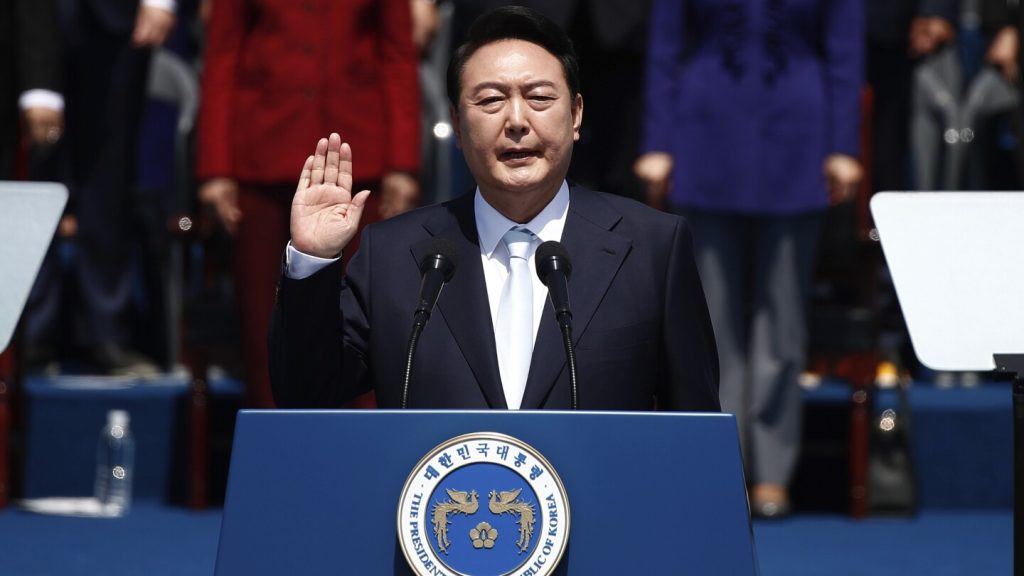The recent parliamentary elections in South Korea have resulted in extended opposition control of the parliament, a significant blow to conservative President Yoon Suk Yeol. With the ruling party failing to secure a majority in parliament, Yoon’s ability to push through his domestic agenda has been severely limited. Many experts believe that Yoon’s political power has been significantly weakened, with some even saying that he is now a “dead duck” rather than a “lame duck” for the remainder of his term.
Yoon’s struggles with low approval ratings and various scandals have been cited as key reasons for his party’s loss in the elections. Critics have accused him of mismanaging economic issues, failing to seek cooperation with opposition leaders, and appointing controversial figures to key positions. Scandals involving his wife have also damaged his popularity. Despite some initial success with reform efforts, Yoon’s tough leadership style and perceived arrogance have alienated some voters.
While Yoon’s domestic policies may face increased opposition in the liberal-controlled parliament, his foreign policy initiatives are expected to remain intact. Yoon is likely to continue his focus on issues such as North Korea, the U.S. alliance, and global contributions. However, challenges may arise if bureaucrats feel the political environment is unstable or if budget cuts impact the implementation of these policies. Overall, Yoon’s administration still has significant influence in shaping international relations.
The election results have boosted the political standing of Democratic Party leader Lee Jae-myung, who lost to Yoon in the previous presidential election. Lee is now seen as a frontrunner for the 2027 presidential race, along with other potential candidates like Han Dong-hoon and Cho Kuk. However, legal issues surrounding Lee and Cho could impact their political futures. Han, despite facing criticism for the election defeat, still has a strong political base and may play a role in shaping the conservative camp for the next presidency.
Looking ahead, the liberal control of the parliament is expected to present challenges for Yoon’s agenda and could lead to increased opposition from the Democratic Party. Yoon’s ability to navigate these challenges and maintain his foreign policy initiatives will be crucial in determining the trajectory of his presidency. Meanwhile, political developments within the ruling and opposition parties will continue to shape the landscape for the upcoming presidential race in 2027. Ultimately, the outcomes of the recent elections have set the stage for a period of political uncertainty and transition in South Korea.


